Israel said eight of its soldiers have been killed in combat in south Lebanon as its forces pushed into its northern neighbour in a campaign against Hezbollah.
The losses were the deadliest suffered by the Israeli military on the Lebanon front in the past year of clashes between Israel and its Iran-backed Lebanese adversary.
Hezbollah said its fighters were engaging Israeli forces inside Lebanon today, reporting ground clashes for the first time since Israel began its ground advance.
The Israeli military said regular infantry and armoured units were joining its ground operations in Lebanon, a day after Israel was attacked by Iran in a missile strike that raised concerns that the oil-producing Middle East could be caught up in a wider conflict.
Iran said that its missile volley - its biggest ever assault on Israel - was over, barring further provocation, but Israel and the United States promised to hit back hard.
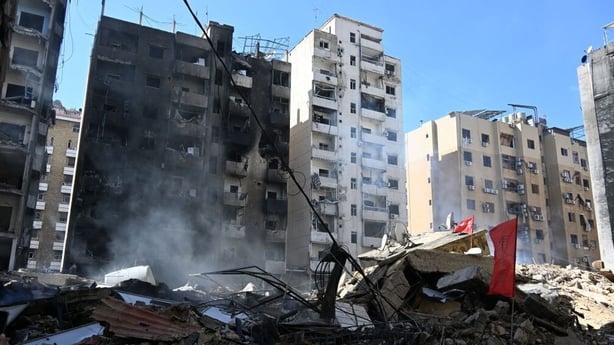
Earlier, Israel confirmed that 22-year-old soldier Eitan Itzhak Oster was the first of its soldiers to die in combat in Lebanon.
"Captain Eitan Itzhak Oster, aged 22... fell during combat in Lebanon," the military said in a statement.
A military website said Mr Oster was killed today, without providing further details.
Hezbollah said this evening that it had destroyed three Israeli tanks as they advanced towards a Lebanese border village.
Follow live updates as Israel and Hezbollah clash in southern Lebanon
It said it had "destroyed three Merkava tanks with rockets as they advanced towards the village of Maroun al-Ras," referring to an area where they reported clashes with Israeli troops earlier in the day.
Hezbollah said earlier that it had targeted an Israeli unit with an explosive device near a southern border village of Yaroun, and reported Israeli casualties.
Earlier, the Israeli military said regular infantry and armoured units were joining ground operations in southern Lebanon, stepping up pressure on Hezbollah, as Israel prepared to retaliate against a barrage of Iranian missile strikes.
We need your consent to load this rte-player contentWe use rte-player to manage extra content that can set cookies on your device and collect data about your activity. Please review their details and accept them to load the content.Manage Preferences
Hezbollah said earlier that it had targeted an Israeli unit with an explosive device near a southern border village of Yaroun, and reported Israeli casualties.
Already battling Hamas in Gaza, Israel is beefing up its presence in south Lebanon in its conflict with Hezbollah a day after it was attacked by Iran, raising fears the oil-producing Middle East could be engulfed in a wider conflict.
Iran said the attack - its biggest assault on Israel - was over barring further provocation, but Israel and the United States promised to hit back.
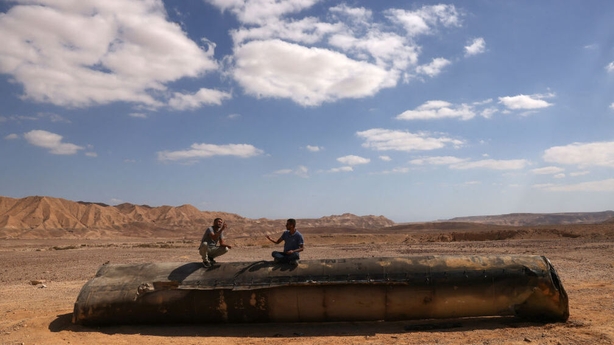
Israel will launch a "significant retaliation" within days that could target oil production facilities inside Iran and other strategic sites, US news website Axios reported, citing Israeli officials.
The violence, meanwhile, continued on the Israeli-Lebanese border today.
Israel's addition of infantry and armoured troops from the 36th Division, including the Golani Brigade, the 188th Armoured Brigade and 6th Infantry Brigade, suggests that the operation may move beyond limited commando raids.
The military has said its incursion is largely aimed at destroying tunnels and other infrastructure on the border and there were no plans for a wider operation targeting Beirut or major cities in southern Lebanon.
It issued new evacuation orders for around two dozen towns along the southern border.
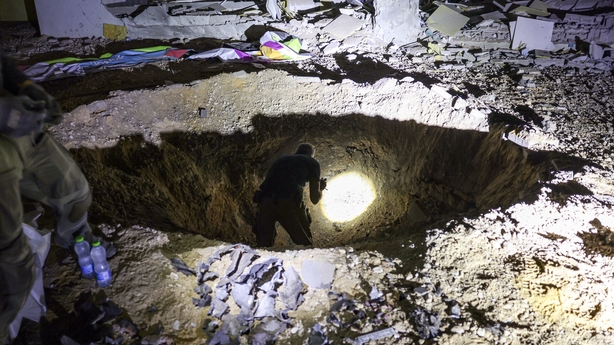
Despite calls for a ceasefire from the United Nations, the US and the European Union, fighting between Israel and Hezbollah continued.
Hezbollah said it was clashing with Israeli troops in the border town of Maroun el-Ras after it had pushed back forces near another border town.
The group said it had also fired rockets at military posts inside Israel.
The group's media chief Mohammad Afif said those battles were only "the first round" and that the group had enough fighters, weapons and ammunition to push back Israel.
There was no immediate comment from Israel.
Israel also renewed its bombardment of Beirut's southern suburbs, a stronghold of the Iran-backed group, with at least a dozen airstrikes against what it said were targets belonging to the group.
New evacuation orders
Large plumes of smoke were seen rising from parts of the suburbs. Israel issued new evacuation orders for the area, which has largely emptied after days of heavy strikes.
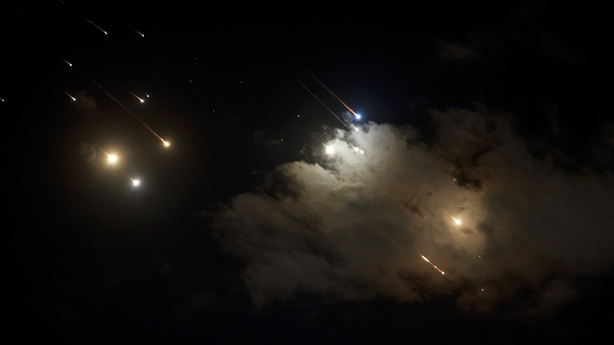
Nearly 1,900 people have been killed and more than 9,000 wounded in Lebanon in almost a year of cross-border fighting, with the most in the past two weeks, Lebanese government statistics showed yesterday.
Hezbollah said it confronted Israeli forces infiltrating the Lebanese town of Adaisseh and forced them to retreat.
Iran's missile strikes and Israel's operations in Lebanon have caused alarm around the world, as Iran's Middle East proxies - Hezbollah, Yemen's Houthis and armed groups in Iraq - launched attacks in support of Hamas.
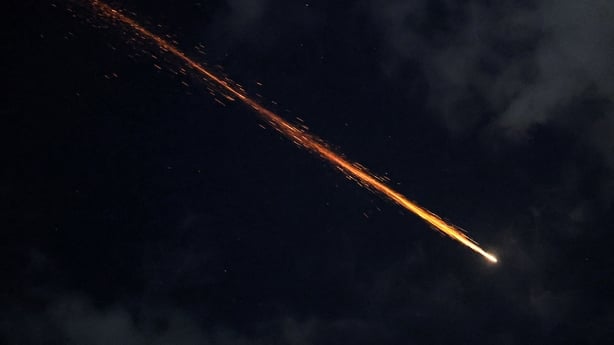
German Chancellor Olaf Scholz called on Iran and Hezbollah to immediately end their attacks on Israel and warned that Iran risks inflaming the entire region.
Japan said it is deeply concerned by the situation.
Moment of impact caught on camera as Iranian missile hits Tel Aviv
Iran said yesterday's assault on Israel was solely aimed at military facilities and was a response to Israeli killings of militant leaders including Hezbollah chief Hassan Nasrallah and aggression in Lebanon against the group and in Gaza.
Iran's state news agency said three Israeli military bases had been targeted.
"Our action is concluded unless the Israeli regime decides to invite further retaliation. In that scenario, our response will be stronger and more powerful," Iranian Foreign Minister Abbas Araqchi said in a post on X.
This evening and NGO said that the son-in-law of Hassan Nasrallah was also killed in an Israeli raid in Damascus today.
"Hassan Jaafar al-Qasir, the son-in-law of Hassan Nasrallah, was among two Lebanese victims of the Israeli raid which targeted an apartment in a residential building in the Mazze district of Damascus," said the Syrian Observatory for Human Rights, a claim a source close to Hezbollah confirmed to AFP.
Israeli Prime Minister Benjamin Netanyahu has vowed to strike back, saying Iran will pay a heavy price.
Washington said it would work with Israel to ensure Iran faced "severe consequences" for the attack, which Israel said involved more than 180 ballistic missiles.
US Secretary of Defence Lloyd Austin spoke to Israeli Defence Minister Yoav Gallant and said Washington was "well-postured" to defend its interests in the Middle East, the Pentagon said in a statement.
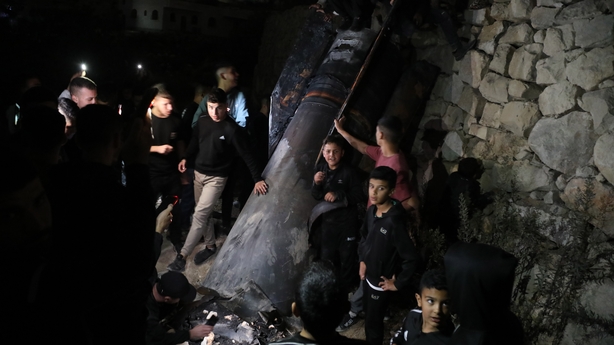
The Pentagon said the airstrikes by Iran were about twice the size of April's assault by Iran on Israel.
'The result will be painful'
Israel activated air defences against Iran's bombardment and most missiles were intercepted "by Israel and a defensive coalition led by the United States", Israeli Rear Admiral Daniel Hagari said in a video on X.
"Iran's attack is a severe and dangerous escalation," he added.
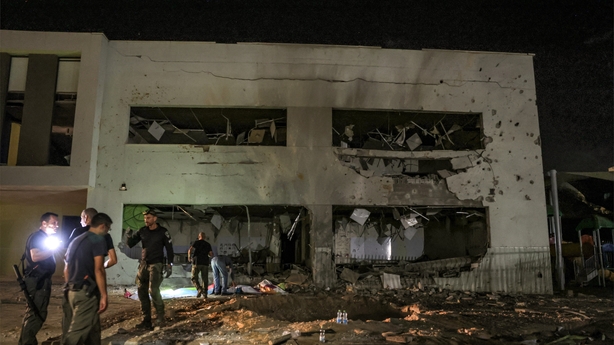
In a statement on state media, the general staff of Iran's armed forces said any Israeli response would be met with "vast destruction" of the latter's infrastructure.
It also said it would target the regional assets of any Israeli ally that got involved.
South Korean President Yoon Suk Yeol met with his national security and economic advisers over the Middle East conflict and called for a swift but measured response to any impact on the country's energy supply, his office said.

